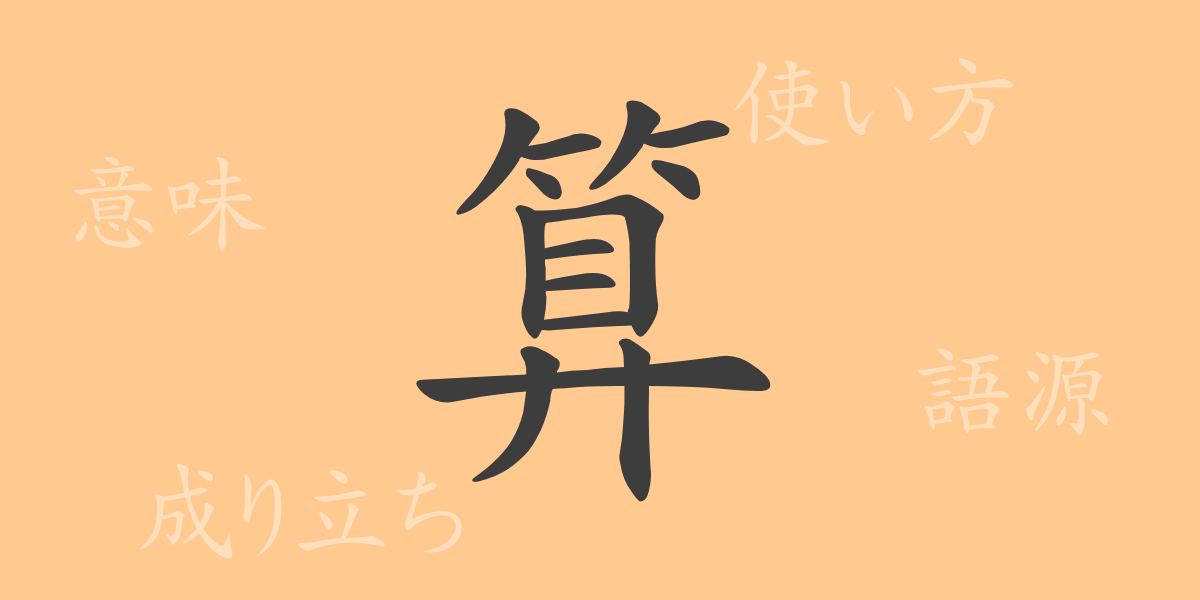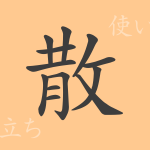Kanji deeply rooted in Japanese culture carry history and meaning in every character. “算(さん)” (san) is one such kanji frequently used in our daily lives, encompassing a wide range of applications from mathematical calculations to various activities like “measuring” and “considering.” This article delves into the world of “算(さん),” exploring its origin, meaning, usage, pronunciation, stroke count, radical, and even related idioms and phrases.
Origin of 算(さん)
The kanji “算(さん)” originated from the abacus, known as “算盤(そろばん)” (soroban) in ancient China, used for counting. This abacus consisted of small stones or wooden rods for calculations, and the character “算(さん)” developed as a pictogram representing these counting tools. The etymology reveals the close relationship between “算(さん)” and activities related to calculation and numbers.
Meaning and Usage of 算(さん)
The primary meaning of “算(さん)” is “to calculate” or “to count.” It is also used to signify “to consider” or “to estimate,” extending its use beyond calculations to include careful evaluation of matters. Additionally, “算定(さんてい)” (santei) and “算出(さんしゅつ)” (sanshutsu) refer to deriving specific numerical values.
Reading, Stroke Count, and Radical of 算(さん)
The kanji “算(さん)” is included in the list of common kanji in Japan, with the following characteristics:
- Reading: The on’yomi (音読み) reading is “サン(さん)” (san), and it has no kun’yomi (訓読み) reading.
- Stroke count: “算(さん)” has a total of 14 strokes.
- Radical: The radical is 竹(たけかんむり) (takekanmuri), representing bamboo.
Idioms, Phrases, and Proverbs Using 算(さん) and Their Meanings
There are numerous idioms, phrases, and proverbs that include “算(さん),” demonstrating the richness of the Japanese language. Here are a few examples:
- 「算用数字(さんようすうじ)」 (sanyou suuji) – Refers to Arabic numerals used for daily number representation.
- 「算盤を弾く(そろばんをはじく)」 (soroban o hajiku) – Means to use an abacus for calculation, also metaphorically referring to skillful calculations.
- 「算を乱す(さんをみだす)」 (san o midasu) – Indicates a disruption in plans or predictions.
- 「天に唾する(てんにつばする)」 (ten ni tsuba suru) – A proverb meaning that despite one’s calculations, fate ultimately decides the outcome.
Conclusion on 算(さん)
The kanji “算(さん)” inherently symbolizes the act of calculating and counting, but it also extends to broader uses in Japanese. From numerical representation to metaphorical phrases, “算(さん)” plays a vital role not only in mathematical concepts but also in everyday planning, prediction, and evaluation. Observing the diverse contexts in which a single kanji operates highlights the richness of Japanese expression and the profound depth of kanji culture.

























